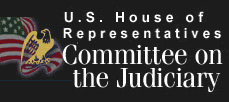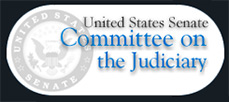Freelancers Are Not Journalists?
 At a time when staff photographers are becoming extinct and being replaced by freelancers, the definition of journalist is on its' way to being gutted by the Congress, seeking to establish a definition of a journalist as such:
At a time when staff photographers are becoming extinct and being replaced by freelancers, the definition of journalist is on its' way to being gutted by the Congress, seeking to establish a definition of a journalist as such:
"The term "covered person" means a person who regularly gathers, prepares, collects, photographs, records, writes, edits, reports, or publishes news or information that concerns local, national, or international events or other matters of public interest for dissemination to the public...and includes a supervisor, employer, parent, subsidiary, or affiliate of such covered person."Since your client isn't your supervisor, all the freelance contracts specifically exclude you from being and employee (and thus they are not your employer) you are not going to be defined as a journalist if this law passes with the House language intact.
What does this mean?
(Continued after the Jump)
 Well, the bill that does this definition is the federal shield bill that allows you to protect your confidential sources, and it could affect your ability to seek press credentials from local, state, or federal organizations. The Senate version of this bill does not have the same language, and is far more broad:
Well, the bill that does this definition is the federal shield bill that allows you to protect your confidential sources, and it could affect your ability to seek press credentials from local, state, or federal organizations. The Senate version of this bill does not have the same language, and is far more broad:the regular gathering, preparing, collecting, photographing, recording, writing, editing, reporting, or publishing of news or information that concerns local, national, or international events or other matters of public interest for dissemination to the public.The Free Flow of Information Act of 2009 is going to redefine the landscape for freelancers, bloggers, and so on. This is a draconian move that organizations like the National Press Photographers Association, National Writers Union, American Society of Media Photographers, Professional Photographers of America, and, frankly, every other association that has news-gathering members, should be opposing.
Hopefully the various trade groups who will have their memberships impacted will be able to affect the House language before it gets voted on. If not, then hopefully the conference committee will rectify the differences in favor of the Senate language on this particular issue.
More information:
- House Bill - Free Flow of Information Act of 2009
- Senate Bill - Free Flow of Information Act of 2009
- Citizen Media Law Project - Federal Shield Bills Offer Rival Takes On Who's A Journalist; Bloggers Could Be Left Unprotected
- Reporters Committee for Freedome of the Press - Shield law re-introduced in House
Please post your comments by clicking the link below. If you've got questions, please pose them in our Photo Business Forum Flickr Group Discussion Threads.

10 comments:
That's not how I read this passage. To me it sounds like the language is trying to pass on protection to the employers of those journalists, so that they are not obligated to pressure a journalist or release information that a "covered person" does not have to release.
I don't think that the language is trying to limit the definition of a covered person to one who is employed by media company.
I agree with #1, seems like the House version is more liberal, rather than less. Any lawyers around to weigh in on this?
Interpret it however you want, but if you do not have a supervisor, employer, parent, subsidiary, or affiliate, you are not a journalist according to this legislation, and that pretty much covers ever freelancer, by definition. Further, I am not the only person who is concerned about this language, as I note the "more information" links at the bottom of the piece.
-- John
My read of this is entirely different than yours and it is that the additional bold language expands the prior language instead of narrowing it. Freelancers are just as covered as ever (they clearly are as long as they "regularly" gather reportage).
The issue of whether bloggers are covered is trickier under the legislation, as some bloggers only engage in commentary, not reportage. But since their "sources" are usually other publications' reportage, those bloggers normally would not need the shield law. In the instances when they do, the law would probably help them, as long as it is not, say, a one-time-only reportage and thus not "regular."
The problem is the word "and", where it reads "...and includes..." As a result of this, you not only have to do the above, you must ALSO have one of the types of relationships that follow the "and".
-- John
I have read the House text and I do not come to the same conclusion John. To my mind it clearly covers a freelance reporter or photographer.
I don't think the problem is the word "and". The "and" adds to the definition of who is a "covered person". It includes the people behind the "and".
The issue for freelances and bloggers in the house version is what John has left out:
" for a substantial portion of the person's livelihood or for substantial financial gain"
What is "substantial"?
This is the link to Citizen Media Law Project is concerned about.
-Pete
Whodat has the same understand of the bill as I do. The feds are in fact protecting anyone close to the journalist who might have been privy to the information being protected (family, co-workers).
But I believe the foundation portion that uses the word substantial is proper. Otherwise any yahoo with a blog and a cause could label themselves a legit journalist -- a line has to be drawn somewhere.
Hi John,
I was curious what your opinions are on Seth Godin's blog entry about trade guilds maintaing the status quo: http://tinyurl.com/bowljn
Do you think ASMP and others are helping us innovate and move forward or are they preserving the status quo?
Thanks!
There does need to be some delineation between who is gathering information for public good, and who simply does not want to be compelled to give evidence. As another poster pointed out, the line has to be drawn somewhere. I believe the word "affiliate" is an adequate and appropriate description for covering a freelance relationship.
This seems like an evolution forward, establishing a reasonable test of the activities a person is engaged in when gaining information that may be protected as privileged information from a confidential source. At current, there is no test for this, as we saw with Judith Miller doing time in the slammer for protecting her source in the Valerie Plame leak investigation. I read it as an effort to formally establish protections, where none previously existed, not to withdraw any current protections.
Post a Comment